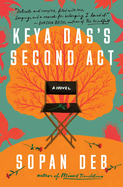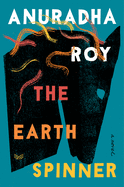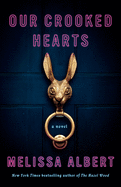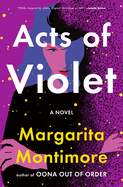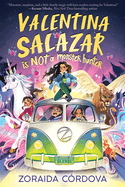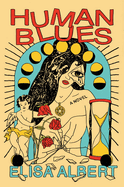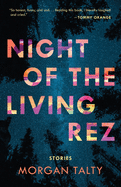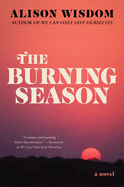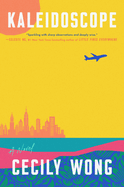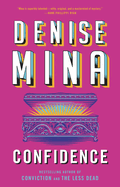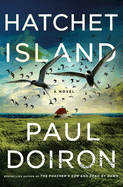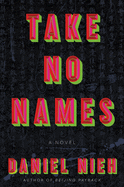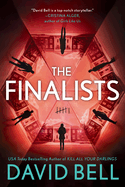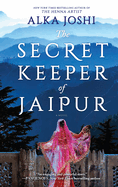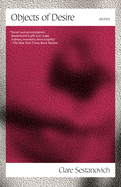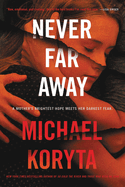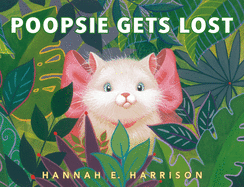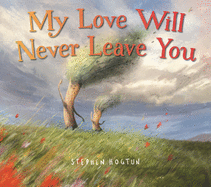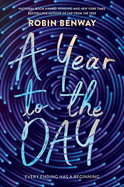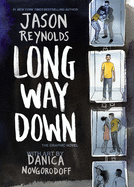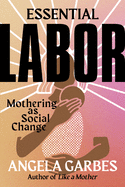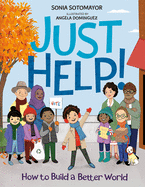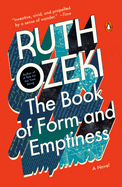Friday, July 8, 2022
Among the 25 books reviewed this week: Sopan Deb's "exquisite first novel," Keya Das's Second Act, about an Indian American family dealing with the death of a teenage daughter; Anuradha Roy's The Earthspinner, "a poetic and ambitious novel about the pursuit of art, love and beauty in the midst of turbulent times"; and Melissa Albert offers "vivid prose in an engaging slow-burn mystery" Our Crooked Hearts; plus many more.
In The Writer's Life, Newbery Medalist Susan Cooper offers readers an intimate look at her relationship with longtime editor Margaret K. McElderry.
Keya Das's Second Act
by Sopan Deb
New York Times journalist Sopan Deb (Missed Translations) turns to fiction in Keya Das's Second Act, exploring how parents and children can become detached and, perhaps, discover new paths to lasting connections. As an Indian American with a New Jersey upbringing amidst familial challenges, Deb's empathic affinity ensures an exquisite first novel.
Keya Das has been dead for five years. She was the younger of two daughters of an Indian American family in suburban New Jersey. She was just 18 and had "the grades to go to Harvard." She was in love with her best friend, Pamela, and had come out to her family. Her parents reacted negatively, and the month-long silence that followed finally became too much. "We need to make sure that she knows we love her, first and foremost," Chaitali said. "We will tell her everything is okay," Shantanu added. But their remorse came too late; Keya was killed in a car accident.
The family splinters. Shantanu and Chaitali divorce. Chaitali marries someone else. Meanwhile, Shantanu ponders selling the empty family house. Clearing the attic, he finds a wooden box filled with folded notes, clipped-together papers, things he was never meant to see. Some of Keya's most intimate memories are contained within. Those surviving words will be the miraculous impetus for, if not closure, then dramatic understanding for her left-behind loved ones.
Deb writes with effortless openness, even as he confronts what are certainly many of life's deepest tragedies: the loss of a child, the breaking of bonds, the betrayal of trust. Insightful, resonating, surprisingly funny, Deb's own second act could earn him a standing ovation. --Terry Hong, Smithsonian BookDragon
Discover: A New York Times writer deftly transfers his reporter's prowess into an exquisite first novel featuring an Indian American family dealing with the loss of their youngest child.
The Earthspinner
by Anuradha Roy
In The Earthspinner, award-winning novelist Anuradha Roy (All the Lives We Never Lived; The Folded Earth) offers an intricate look at creative passion, fanaticism and the precarity of living on the brink of change. While at university in England, Sara, a pottery student, looks back on her childhood teacher, Elango, and the events that changed both of their lives.
For a year and a half, while teaching her to throw her first pieces, Elango was also consumed with crafting the terracotta horse that haunted his dreams. As Elango works tirelessly on his horse, his life in his small town in southern India is changing. He finds comfort in a mysterious and loving dog called Chinna as he falls desperately in love with Zohra, a Muslim girl forbidden from marrying a Hindu like him. As Elango's masterpiece nears completion, tensions rise in the community, and Elango and Sara are both left to wonder if love, truth and art can ever possibly be enough.
Like Roy's other novels, The Earthspinner uses dreamlike lyricism alongside even-handed description, giving its gradual accumulation of tension a mesmerizing cadence. While the novel's main plot takes place during Sara's childhood and during the fateful summer and fall when Elango completes his horse, the story's frame narrative of Sara at university and the occasional epistolary interjections from the woman whose lost dog becomes a permanent fixture in Elango's and Sara's lives gives the piece a larger scope and greater texture.
The Earthspinner is a kaleidoscopic glimpse into the fragile web of connections and ruptures, divine convergences and missed opportunities that make up life's unpredictable and breathtaking pattern. --Alice Martin, freelance writer and editor
Discover: Tried-and-true storyteller Anuradha Roy delivers a poetic and ambitious novel about the pursuit of art, love and beauty in the midst of turbulent times in The Earthspinner.
Acts of Violet
by Margarita Montimore
Margarita Montimore (Oona Out of Order) astonishes readers with her authorial sleight of hand in the twisty, genre-defying family drama Acts of Violet, told in multiple formats.
Superstar stage magician and self-help guru Violet Volk rose to prominence as a pop-culture icon, then performed a vanishing act for a packed house on February 24, 2008, and never reappeared. Ten years later, her sister, Sasha, stresses about an upcoming vigil for the anniversary of Violet's disappearance and the media circus attached to it. Sasha has never spoken publicly about her sister, but podcast host Cameron Frank must get her to talk to him or lose his job. Through chapters told from Sasha's perspective as well as podcast transcripts, news articles and letters, two versions of Violet emerge, one a genius magician and feminist role model beloved by fans and the other a mercurial narcissist. "Anyone who tells you they knew Violet Volk is a liar," her ex-husband says. As the anniversary approaches, it becomes clear that the world may never know what happened to Violet, but Sasha has her own secrets.
The story has the feel of a crime thriller by way of The X-Files, though Montimore gives it a serious core with reflections on the lot of women in the entertainment industry. The interspersing of interviews and media pieces creates a broader sense of Violet's magnetic personality and the time period, an effect reminiscent of Taylor Jenkins Reid's Daisy Jones & the Six. Montimore packs in dazzling tricks, but the complex and enduring relationships between the sisters brings the real magic. --Jaclyn Fulwood, blogger at Infinite Reads
Discover: The 10-year anniversary of a famous stage magician's disappearance reopens wounds for her sister in this twisty multiformat novel.
Human Blues
by Elisa Albert
Elisa Albert confronts sensitive topics in a provocative, darkly humorous style, addressing postpartum introspection in After Birth and death in The Book of Dahlia. Taking on infertility in Human Blues, she introduces readers to feisty singer-songwriter Aviva Rosner, who yearns for a baby but fiercely rejects the technology of "assisted reproduction."
In nine chapters, each following Aviva's menstrual cycle--which she calls "the bleed" and a "fresh disappointment each and every time"--she addresses the frustrations of not being pregnant: "It was unbearable. (Ha!) It was inconceivable. (Oh yes.)" Firmly refusing the "profitable technology" of child-engineering, she irreverently scorns the absurdity of egg-selling, gender-selecting, surrogacy and "assisted evolution," citing the inherent "mucho cash and laboratory hijinks" and their moral ambiguity. Fan reaction to her album Womb Service brings unsolicited testimonials of successful interventions; her sardonic reactions include a darkly hilarious running spoof of these babies' names--Seahorse, Harpoon and Styx among them. Aviva's distinctive supporting cast includes her devoted husband, Sam ("Sammy-Sam," her "manny-man"), who is steadfast and a high school teacher, and her counselor, "the Rabbi," a colorful and consistent foil for her thoughts. An obsessive enthusiasm for the late performer Amy Winehouse offers another dimension to the whip-smart and endearing Aviva.
Each chapter nurtures readers' hopes that Aviva will conceive, while delivering emotionally resonant reactions to monthly disappointments. Ever-creative Aviva's "fever of want" breaks, and she "sat like a proud hen on thirteen fine new songs. A wonderful cycle of songs. How fertile she was!" She considers naming her next album Vessel of the Void, a metaphor typical of the comic yet tragic tone of this fiercely smart, poignant novel. --Cheryl McKeon, Book House of Stuyvesant Plaza, Albany, N.Y.
Discover: In a darkly humorous novel, presented in chapters that follow monthly menstrual cycles, a singer mourns her childlessness while eschewing the invasive technologies of assisted reproduction.
Night of the Living Rez
by Morgan Talty
The dozen stories of Morgan Talty's Night of the Living Rez make for a vivid debut collection. Talty sets his fiction in the "rez," the Penobscot Indian Nation community of which he, too, is a citizen; here, it's called the "Panawahpskek Nation," whose spelling difference (and more) is elucidated in a note at the end of the book.
Talty writes each story in first-person, jumping back and forth between David the boy and David the man. His second story, "In a Jar," introduces young David and his mother, who have "left our life down south with my father and sister" and moved into a Panawahpskek home. He finds "a glass jar filled with hair and corn and teeth," a discovery that invites the medicine man Frick, who deems the jar "bad medicine," seemingly setting in motion a future cursed with suffering and disappointment. As an adult, David battles drug addiction, unemployment, malaise, spending most of this directionless time with Fellis, a fellow addict who admits to "bumming from [his] mom for thirty-one years."
Through David's maturing eyes, Talty illuminates his narratives with empathy, vulnerability and, occasionally, unexpected humor. He writes with assuredness, with an eyes-wide-open frankness that make his characters feel immediately, if not familiar, then certainly knowable. Joining the ranks of Tommy Orange, Brandon Hobson and Terese Marie Mailhot, Talty's strikingly successful debut is poised to expand the growing circle of lauded Indigenous writers. --Terry Hong, Smithsonian BookDragon
Discover: Morgan Talty's superb debut collection showcases 12 interlinked stories following a single Native narrator from his troubled childhood to the challenges of his adulthood.
The Heart of Summer
by Felicity Hayes-McCoy
Irish novelist Felicity Hayes-McCoy (The Library at the Edge of the World) returns to the charming fictional town of Lissbeg, Ireland, in The Heart of Summer, the sixth in the Finfarran Peninsula series. As the summer season begins, her warmhearted characters are adjusting to recent changes. Newlyweds Aideen and Conor navigate life on the farm with Conor's family, and librarian Hanna Casey is enjoying the new home she shares with her architect partner, Brian Morton. When Brian's grown son appears for an unexpected visit and an old flatmate of Hanna turns up with an invitation to London, Hanna decides to take a holiday, which prompts some serious self-reflection for both her and Brian.
Hayes-McCoy captures the interconnectedness of small-town life, centering her narrative on the former convent, now library, where Hanna works. Familiar characters (including Hanna's irascible mother, Mary) make welcome reappearances, and the lush beauty of an Irish summer is almost a character in itself. Hayes-McCoy's characters are flawed but compassionate; they make mistakes, learn to listen to one another and try again. Meanwhile, the local castle sees increased foot traffic from cruise-ship passengers, and builder Fury O'Shea, whose bluster belies his kindness, has a finger in every pie, as always. Hayes-McCoy expertly blends colorful local history with complex family relationships and the restorative power of a walk through Finfarran's green fields. The Heart of Summer is a cozy, comforting return to Lissbeg and a thoughtful meditation on the choices that shape our lives. --Katie Noah Gibson, blogger at Cakes, Tea and Dreams
Discover: Felicity Hayes-McCoy's sixth Finfarran novel follows the residents of small-town Lissbeg, Ireland, as they navigate big changes.
The Angel of Rome: And Other Stories
by Jess Walter
What makes the writing of Jess Walter (We Live in Water; Beautiful Ruins) is the tremendous humanity of his characters, and in the collection of stories The Angel of Rome, Walter's gift is on full display. It's not just that the characters are well-drawn, though they are. It's that the ordinary people populating his dozen stories think and feel extraordinary things, notions at once remarkable and as familiar as a favorite shirt.
In "Fran's Friend Has Cancer," the dialogue between Max and Sheila is so typical it could have been transcribed from a conversation overheard in a restaurant; in fact, that's exactly what it is, each word captured by the student sitting next to them. The turn this story takes is clever and shows off Walter's considerable wit, but it is the couple's banal (and hilarious) conversation that sets the stage and Max's despairing reflection that steals it: "Getting old... is not a drift or a dream or a story. It is an unimaginable loneliness, the loss... of everything." The title story lets screenwriter Jack Rigel look back across decades to when he first visited Rome and felt himself becoming a writer. He knows what Walter knows: "You're just trying to create feelings. It's what works on the page. On screen. In life."
The Angel of Rome offers all these things: the bitter with the sweet; the sweeping passage of time and the single moment; and raucous comedy mingled with quiet tragedy. It's what works. --Sara Beth West, freelance reviewer and librarian
Discover: Jess Walter's wide-ranging collection of 12 stories captures the bitter with the sweet; the sweeping passage of time and the single moment; raucous comedy mingled with quiet tragedy.
The Burning Season
by Alison Wisdom
The Burning Season, the second novel from Alison Wisdom (We Can Only Save Ourselves), is a mesmerizing and eerie portrait of faith, marriage and desire. For as long as Rosemary can remember, she's always wanted more, which is the only way she can explain what drives her to keep cheating on Paul, her beloved husband and well-established "good guy." Desperate for his forgiveness, Rosemary agrees to follow him to an ultraconservative Christian sect in Texas where men like Paul and pastor Papa Jake always have the last word. But as fires begin to ravage the area and Rosemary doesn't become pregnant with the child Paul so desperately wants, tensions within her marriage, her community and herself escalate fast.
With emotional nuance and atmospheric resonance, The Burning Season offers a new angle on Wisdom's previous subject matter: the intense and at times unsettling interior lives of women. Rosemary's desires are palpable, just as her motives are often mysterious, and it is this internal tension, even more than the external mystery of the fires or the pressures of the cult she finds herself in, that drives the story forward. Paul's menacingly gentle superiority hovers over her already disquieting compulsory environment, as Rosemary herself gets closer and closer to combusting. While Paul's tendency to both charm and unnerve works as an apt metaphor for the appeal of religious fanaticism, it is an even better portrait of the subtle power relations and the pleasure of submission in a marriage. --Alice Martin, freelance writer and editor
Discover: Thought-provoking and emotionally insightful, The Burning Season is a provocative and haunting follow-up to Alison Wisdom's debut novel.
Life Ceremony
by Sayaka Murata, transl. by Ginny Tapley Takemori
A mirror is supposed to tell the truth, to reflect back to its viewer an accurate representation of the self. A funhouse mirror elongates and shrinks that reflection, allowing the viewer to laugh at the distorted version of self it offers, funny because it is a lie. With Life Ceremony (translated from the Japanese by Ginny Tapley Takemori), Sayaka Murata (Convenience Store Woman; Earthlings) has created a series of funhouse mirrors, each story in the collection pushing readers to reconsider what is true, distorting the image so completely as to open the viewer to new and unexpected perspectives.
The dozen stories are uniformly strange but delivered in a straightforward cadence that gives lie to the strangeness. They are also wildly readable, each story turning societal norms on their head and leaving readers wondering if maybe it would make sense to honor the passing of a loved one by preparing and sharing a meal from their remains (as is the case in the title story), or reflecting on the ways people will alter and adapt their personalities to fit different situations, as is so deftly explored in the closing story, "Hatchling." Each story displays a fine-boned architecture, a careful curation of details and paring away of the extraneous. The result is remarkable, the lean force of Murata's imagination rippling through each piece.
This, then, is the magic Murata works in Life Ceremony, the impressive way she is able to destabilize a mirrored reflection of humanity, giving back a strange and wonderful truth. --Sara Beth West, freelance reviewer and librarian
Discover: Unsettling but never unpleasant, Life Ceremony is a brilliant collection of 12 stories that twists and distorts the norms of humanity while somehow returning a strange and wonderful truth.
Kaleidoscope
by Cecily Wong
In Cecily Wong's heartbreaking Kaleidoscope, the death of a young woman ripples through members of a family in varied ways as they attempt to reshape their lives around her absence.
The Brightons are known as the rags-to-riches founders of Kaleidoscope, an "Eastern-inspired retailer that has... swept the country." Their daughters are instrumental to their image and the business, with their eldest, Morgan, sourcing and styling luxury goods from around the world. When she is killed in a freak accident, she leaves behind devastated parents, a collapsing business empire and a younger sister. And Riley has no sense of how to live her life if not in her sister's shadow.
Kaleidoscope moves through time in short, nonlinear bursts. Through Riley's eyes, Wong (Diamond Head; Gastro Obscura, with Dylan Thuras) takes readers from the Brightons' early days in business to Riley's eventual backpacking journey around the world with her dead sister's boyfriend; from high school parties and girlhood bonds to aimless, meandering walks around New York City as a college student; from living "entirely in my parents' palm, like a creature from a lesser planet" to reckoning with being "forced to see myself" in Morgan's absence. Wong weaves these snippets together as Riley deals with her grief in ways her parents cannot understand but that become clear to readers as Kaleidoscope unfolds into a novel much bigger than the sum of its parts: a story of family, grief and identity and what it means to make a life out of an "opportunity, an aberration, scooped up through... unspeakable loss." --Kerry McHugh, freelance writer
Discover: An emotional, multifaceted novel explores questions of grief and identity following the accidental death of a young woman and the family she left behind.
Mystery & Thriller
Confidence
by Denise Mina
Confidence, the sequel to Scottish writer Denise Mina's Conviction, finds Glasgow-based podcaster Anna McDonald desperate to escape the suffocating holiday she organized with the best intentions for her blended family. Anna crafts an excuse to flee but couldn't have anticipated all the globe-trotting and death-defying that awaits her in this hard-charging but highly amusing thriller.
During her anxiety-making holiday, Anna receives a Twitter message from @WBGrates: "Lisa Lee didn't take it. Please tell them." Included is a link to a YouTube video in which Lisa, a young Scotswoman, gives viewers a tour of an abandoned chateau in France she has broken into. At one point she gestures to a silver box; another link from @WBGrates reveals that the box is now listed in a Paris auction catalog as a "Roman casket." As Anna digests this information, she has the nagging sense that she has seen the name Lisa Lee before. Didn't Lisa once write to the podcast?
Conviction and Confidence are something of a playful departure for Mina (Gods and Beasts; The Long Drop; Rizzio), whose turf tends to be gritty Scotland. The territory of Confidence is the European capitals where Anna and Fin, her co-podcaster (and fellow holiday escapee), find themselves bombing around, all in the hopes of learning whether Lisa stole the casket, which may have something to do with her recent disappearance. A foulmouthed 12-year-old boy who gets caught up in the messy intrigue provides much of the novel's humor and, just when readers least expect it, its heart. --Nell Beram, author and freelance writer
Discover: This hard-charging but highly amusing thriller, the sequel to Conviction, finds a Glasgow-based podcaster searching for a missing Scotswoman who may have stolen a valuable artifact.
Hatchet Island
by Paul Doiron
The beauty and brutality of Maine's natural world--and humans' interference--are front and center in the exquisitely plotted Hatchet Island, the 13th novel from Paul Doiron (One Last Lie; Stay Hidden; Bad Little Falls) about game warden Mike Bowditch. Hatchet Island's concentration on at-risk birds, endangered whales and lobstermen fearful of losing their occupations illustrates how Mike's many duties include protecting Maine's resources as well as police work.
Mike and his girlfriend, biologist Stacey Stevens, travel to Baker Island in response to a plea for help from Kendra Ballard, Stacey's former roommate and colleague and now the project manager for the Maine Seabird Initiative's efforts to return puffins to the island. Kendra is worried because her boss, Maeve McLeary, hasn't been heard from since she left several days ago. The fears of Kendra and the other two researchers grow when they receive anonymous threats and the island's observation blinds are shot up. They believe the harassment comes from local lobstermen who are against a proposal that would close off a portion of the Gulf of Maine to protect endangered whales. After two researchers are murdered and a third is found incoherent, Mike's investigation takes him to Ayers Island, where residents live courtesy of a wealthy, eccentric photographer and his wife, and finally to a creepy quarry on Hatchet Island.
The tense plot works as an exciting locked-room mystery, while also giving insight into Mike's sense of justice, concern for Maine's fragile environment and deepening relationship with Stacey. --Oline H. Cogdill, freelance reviewer
Discover: The 13th novel in the Mike Bowditch Mysteries series delivers a gripping plot based on Maine's natural world.
Take No Names
by Daniel Nieh
Daniel Nieh, a former international model and Chinese-English translator, introduced his protagonist Victor Li in the gripping Beijing Payback, published in 2019. Nieh's sophomore thriller, Take No Names, heightens the gasp-inducing wild ride of Victor's debut. Although both titles are easily consumable as stand-alone novels--Nieh deftly interweaves plenty of pertinent details to bridge the two plots--to read them in order is, of course, the more rewarding experience.
Victor's father is still dead, and Victor remains wanted for murder. He has managed to return to the U.S. but not home to California. He lives under a fake name in Seattle's Chinatown, estranged from his sister, Juliana, his only remaining family. And he works for Mark Knox, someone else seemingly without a past, mostly in IT and security--not all of it legal. When their latest scheme goes violently awry, the pair escape to Mexico City, where they're hoping the quick sale of a rare gem Victor discovered will provide the wherewithal for another reinvention.
Nieh's multipronged plot intertwines the China-U.S. divide, U.S.-Mexico antagonism, contemporary colonialism and U.S. supremacy with headline-inspired twists and turns that are remarkable in their timeliness. Beyond his meticulously detailed attention to what happens, Nieh never loses sight of his characters, allowing Victor to confront the nebulous unknowns of his closest relationships--with his late father, his neglected sister, his taciturn partner and his own conflicted self. Undoubtedly enhanced by his polyglot, global experiences, Nieh brilliantly crafts another culturally diverse, politically savvy, border-defying novel that both entertains and illuminates. --Terry Hong, Smithsonian BookDragon
Discover: Daniel Nieh's dynamic sophomore thriller adroitly continues the life-threatening exploits of his anti-hero Victor Li as he heads to Mexico City to escape the law (again).
The Finalists
by David Bell
Academic mysteries have vicious plots. All that jockeying for higher positions, more money or a better office brings out the worst in people, education notwithstanding. Edgar nominee David Bell (The Forgotten Girl) shows just how nasty the well-educated can be in his expertly plotted The Finalists, in which six students vie for a lucrative scholarship at the small, 152-year-old Hyde College in Kentucky. They'll take written exams followed by in-person interviews while locked in the campus's most remote building, the decaying Hyde House that's "older than Kentucky itself."
Everyone must hand over all electronic devices, including Troy Gaines, the college's vice-president for institutional development, and Nicholas Hyde, the founder's arrogant, remaining descendant, whose family fortune funds the college. The competition has barely begun when one student is found poisoned not long after partaking in the welcoming tea and biscuits; another death soon follows. The students turn on each other, but escape is futile: doors are locked tight and windows are shatterproof. The terrified students are being stalked inside the house, but their safety is also compromised outside where environmental protesters become more vocal and violent.
Bell pays homage to Agatha Christie's And Then There Were None, skillfully transitioning into the locked-room mystery while simultaneously giving the novel his own spin. Bell allows each character to shine, even those dispatched early. The resentment is palpable for the students; for Troy, who fears for his job; and for the entitled Nicholas, who--as the family's representative--has complete control over the college's funds. The Finalists makes the grade with solid suspense. --Oline H. Cogdill, freelance reviewer
Discover: Six college students are locked in a crumbling mansion with no way to escape as they compete for a lucrative scholarship in this suspenseful homage to Agatha Christie.
Nature & Environment
100 Animals that Can F*cking End You
by Mamadou Ndiaye
100 Animals that Can F*cking End You is sure to appeal to animal lovers--or anyone who loves an entertaining coffee-table book. Written by TikTok star Mamadou Ndiaye, who is known for his dramatic and funny videos about surprisingly deadly animals, 100 Animals is a delightful mashup of beautiful wildlife photos and Ndiaye's irreverent, often profane commentary on how these animals want to kill humans: "Don't let the cute baby face fool you--kangaroos have psychopath tendencies."
Giving each animal a "merk" rating (short for mercenary and slang for kill) as well as providing information on how exactly these animals pad their death statistics, 100 Animals may make readers want to avoid Africa and Australia, but it's guaranteed to keep them laughing. From "Homicide hounds" (African wild dogs) and "tiny animals that could turn you into a hashtag" (the tsetse fly and candiru) to the "Satan guppy" (stonefish), Ndiaye has it covered.
100 Animals is clearly an homage to Ndiaye's lifelong love of the animal kingdom and is perfect for National Geographic fans who would like something edgier. In addition to the information and merk rating for the 100 animals that are highlighted, there are also sections such as "Six Animals You Didn't Know Were Cannibals" and "Animals that Look Deadly but Aren't," in which Ndiaye's wit and humor combine with the truly gorgeous photographs, making 100 Animals that Can F*cking End You absolutely irresistible. --Jessica Howard, freelance book reviewer
Discover: In this hilarious guide to deadly animals, a TikTok star shares quips and gorgeous animal photos.
Performing Arts
Filmmakers on Film: How They Create, Craft and Communicate
by David Jenkins
As David Jenkins, editor of the film journal Little White Lies, notes in his introduction to Filmmakers on Film: How They Create, Craft and Communicate, directors have to be a lot of things to make a great film: poets, musicians, photographers, novelists, actors and more. This book, "a celebration of professional multi-hyphenates across the last century and a small fraction of the new one," highlights 50 directors Jenkins loves. For each, Jenkins answers the question, "What makes this filmmaker exceptional?"
In facing pages, Jenkins presents a paragraph about each director next to a still photo from one of their films. Interviews with some of the filmmakers are interspersed throughout the book. Jenkins, to his credit, has compiled a diverse collection of artists, including many women, people of color and directors from places other than the U.S. and Europe. Along with familiar names such as Godard, Hitchcock and Scorsese are the likes of Argentinian Lucrecia Martel, whose four films "zero in on protagonists who are largely blind to the world in which they are cocooned," and Abderrahmane Sissako of Mauritania, who "employs film as an illustrative medium for private quandaries" of the people of Africa. There are also entries for the dreamlike films of Thailand's Apichatpong Weerasethakul and the "lightly warped but always discernible impression of messy reality" in the work of Britain's Joanna Hogg. The result is an excellent introduction to some of the world's greatest and most provocative filmmakers. --Michael Magras, freelance book reviewer
Discover: A film journal editor offers an admirably diverse introduction to many of the world's best film directors.
Poetry
O
by Zeina Hashem Beck
In O, the third full-length poetry collection by Lebanese poet Zeina Hashem Beck (Louder than Hearts), familial love and friendship salve ambivalence about heritage and the body. Hashem Beck, now living in California, expresses paradoxical feelings about her birthplace. "Fatherlands/ are ominous & comforting," she writes, describing Beirut as a "city of waste & jacaranda." In one of the six ghazals, which are some of the collection's standouts, she paints her relationship with the capital as a doomed affair: "You were never mine. I, never yours./ Isn't that true love's ode, dear Beirut?" Indeed, the collection also features eight odes that vary in length and form--from a multi-stanza, second-person piece about lipstick to a brief memory of roadside strawberries.
Other themes include trying to love one's body ("the church that I am"), frustration with cyclical violence ("I'm tired of metaphors about peace") and the risks inherent to parenthood. Family ties fuel poems referencing her late uncle's flower shop, her grandmother's death and a loved one's multiple sclerosis. Friendship is equally important, Hashem Beck confides: "Reader, let me tell you how I keep it together:/ friendships & antidepressants."
This collection of 47 poems teems with alliteration, bird imagery, spiritual language, textspeak and wordplay. In bilingual poems dubbed "duets," English and Arabic trade off on the page. Three separate "triptychs" are set out in columns that can be read across or down the page. Inventive in form, emotionally resonant and grounded in everyday situations, O feels like a lesson in recognizing that, despite the reality of conflict and illness, "beauty always comes." --Rebecca Foster, freelance reviewer, proofreader and blogger at Bookish Beck
Discover: These 47 emotionally resonant poems, inventive in form, express a Lebanese writer's ambivalence about her homeland but also celebrate family memories.
Now in Paperback
The Secret Keeper of Jaipur
by Alka Joshi
Readers of Alka Joshi's debut novel, The Henna Artist, fell in love with Malik, the savvy, street-child protégé of Lakshmi, the titular artist who made her living serving the upper-crust women of Jaipur. Joshi's second novel, The Secret Keeper of Jaipur, picks up Malik's and Lakshmi's stories 12 years later, as Malik (now a young man) uncovers some shady dealings at a prestigious construction firm.
Now living in Shimla, Lakshmi is happy tending to an extensive healing garden and helping her husband run his medical clinic. But she has ambitions for Malik, who owes a great deal to his "Auntie-Boss." He travels to Jaipur to apprentice at Singh-Sharma Construction (whose owners have a complicated history with Lakshmi), just as the firm unveils a state-of-the-art cinema. When the theater suffers a collapse on opening night, Malik begins to investigate. Meanwhile, Lakshmi and a new acquaintance in Shimla have stumbled onto a smuggling operation that may have links to the cinema incident.
Joshi's storytelling pulls readers into the colorful, rapidly changing world of 1960s India, where the maharanis still wield their traditional power but the newer forces of money and technology are also at play. Familiar characters and old secrets from The Henna Artist reappear, as Malik and Lakshmi wonder what to do with their new information and how to protect those they love. Joshi's second novel is an engaging story of secrets, betrayal and complicated power dynamics across class, gender and generational lines. --Katie Noah Gibson, blogger at Cakes, Tea and Dreams
Discover: Alka Joshi's engaging second novel features familiar and new characters investigating the secrets surrounding a mysterious collapse at a brand-new cinema.
Objects of Desire: Stories
by Clare Sestanovich
Clare Sestanovich's debut short story collection, Objects of Desire, focuses on a series of women grappling with the dissolution of their various relationships and the unsteady dynamics that result. Many of the 11 stories take place in the "after": after the divorce, the breakup, the breakdown. There are no romantic reunions, no sensible conclusions. "Terms of Agreement" is an informal letter from an unnamed narrator to her former boyfriend, an attempt loosely to recover the details of a relationship now past. It is also an exploration of performance: the performance of everyday living, especially in the context of someone else. Sestanovich studies the way people act (and why) with a blunt, humorous hand. In "Wants and Needs," a 20-something takes in her 19-year-old "sort-of stepbrother" and lazily imagines a relationship with him, one she doesn't even really want.
The prose is snappy, electric and tight; even unassuming sentences are charged with meaning. And though the collection primarily focuses on people--the way they see each other, the way they relate--it also examines modern society's role in enabling and dissolving their relationships. Most of the young narrators are somewhat creative and aimless: aspiring writers and painters participating in the gig economy. A politician ex-boyfriend is "admirable politically and abhorrent personally." A young man rejects emotional intimacy on dating apps, while his parents' open relationship brings in a much younger mistress. The characters--their attitudes, worldviews and situations--are distinctly 21st century. Sestanovich--named one of the National Book Foundation's "5 under 35"--has managed to create an accessible, sharp collection without sliding into cliché. -- Simone Woronoff, freelance writer and reviewer
Discover: This hilarious and cutting collection of 11 stories examines the politics of modern-day relationships, breakups and performative attitudes with an exacting wit.
Never Far Away
by Michael Koryta
Michael Koryta's Never Far Away opens with a nail-biting scene in which Nina Morgan is asking for contract killers to murder her--to make it look like they have, that is, using shallow cuts and lots of blood. Faking her death and disappearing by herself is the only way for her to save her husband and kids and escape being hunted by her boss, a powerful dark-business figure named Lowery, whom Nina crossed simply by telling the truth.
Ten years later, Nina has established a new, happy life as Leah Trenton, a wilderness guide in northern Maine. But then she gets a call informing her that her husband has died in a freak accident. Leah swoops into action to rescue her kids from the killers who are still out there. One problem: they don't know Leah is their "long-dead" mother. And this time, Lowery will make sure Nina actually dies.
Thrillers are only suspenseful if the stakes are high and the villains formidable, and the Blackwell men in Koryta's novels are among the most lethal in crime fiction. The Blackwell brothers from 2014's Those Who Wish Me Dead reappear at the start of this novel. Next-generation Dax Blackwell is the killer from If She Wakes, but, in a neat twist, is helpful to Leah in Never Far Away while remaining as deadly as ever. The story is hers, though: a mother who goes through her worst nightmares only to come out as fierce as those who wish her dead. --Elyse Dinh-McCrillis, blogger at Pop Culture Nerd
Discover: A woman with a past braves the wilderness of northern Maine with her children to protect them from killers in this taut thriller.
Children's & Young Adult
Our Crooked Hearts
by Melissa Albert
Vivid prose pairs effortlessly with an engaging slow-burn mystery in this eerie, dual-timeline thriller from Melissa Albert (The Hazel Wood).
Seventeen-year-old Ivy starts her first day of summer break with a busted lip--her ex-boyfriend swerved to avoid a naked girl in the middle of the road at 3 a.m. Ivy can't get the girl's "uncanny gaze" out of her head, and she is further unnerved when she finds a decapitated rabbit. Ivy thinks her mother, Dana, is at the center of the disquieting incidents. Sick of her mother's "silences and... secretive bullshit," Ivy is determined to unearth what Dana's been hiding.
Fifteen-year-olds Dana and Fee are best friends. Dana can "feel things. Objects, places, the contours of them and how the air moved through" and Fee always knows what people need, whether it's a glass of water or a bottle of aspirin. When the pair meets 17-year-old Marion, a novice occultist, their gifts soar. But an attempt at a spell to increase their magical potency summons a powerful dead occultist instead--the blowback is so long-lasting, even Ivy can't escape it.
In Our Crooked Hearts, Albert deftly uses a creepy, atmospheric story about dark magic to explore the complexity of mother-daughter relationships and how one deals with the consequences of one's actions. Albert effortlessly weaves Dana's and Ivy's stories together in alternating chapters ("Right now" and "Back then"), eventually aligning them to reveal dark interlocking truths. The dual points of view help build suspense as Albert slowly pulls back the curtain on the secrets between mother and daughter. Albert's creativity and imagination shine through in her world-building and lush language, leaving readers with a spellbinding, skin-tingling sensation. --Lana Barnes, freelance reviewer and proofreader
Discover: In this eerie, witchy thriller from Melissa Albert, dual timelines explore the relationship between a mother and daughter and the secrets that bind them.
Valentina Salazar Is Not a Monster Hunter
by Zoraida Córdova
In this escapist middle-grade fantasy, a spirited tween leads her siblings on a frolicsome and fearsome quest to protect the egg of the creature that killed their father.
After Arturo Salazar--the first Salazar to protect, not kill, the magical beasts that accidentally cross into our world--was eaten by an orü puma, his wife and children retired from saving supernatural animals. Eleven-and-a-half-year-old Valentina hates her family's new normal because they no longer spend time together. So when her monster-killing Uncle Raf embarks on a hunt to destroy an orü puma egg, Valentina persuades her brother and sister to undertake one final mission to save it. However, the stone they need to open a portal to Finisterra--the realm where they return every rescued creature--has been stolen, likely by Uncle Raf. Now, they must procure a new stone, beat Raf to the egg and unravel what he intends to do with a wondrous land of mythical monsters.
Valentina Salazar Is Not a Monster Hunter by Zoraida Córdova (Incendiary; Labyrinth Lost) is a wholesome fantasy adventure. Young readers should easily identify with Valentina, who candidly shares emotions ("You know when you're so angry you want to cry?"). The trio drives a tech-modified 1960s camper van, robs a national museum and mucks unicorn stables of rainbow poop, ensuring epic entertainment between expertly tackled harder topics: losing a loved one, bullying, erasure. This story of mystical mayhem comes alive with characters and settings inspired by Córdova's Ecuadorian background. It is an exuberant and warm celebration of hope, selfhood and family unity. --Samantha Zaboski, freelance editor and reviewer
Discover: This sparkling supernatural middle-grade adventure follows three siblings on an entertaining and harrowing mission to rescue a monster egg while grieving their father.
Poopsie Gets Lost
by Hannah E. Harrison
In a droll, gorgeously illustrated story, a pampered indoor cat is manipulated into a dangerous jungle adventure by a never-seen narrator who bears a striking--though invisible--resemblance to every Machiavellian older sibling ever.
Oh, Poopsie--don't do it! Like so many protagonists before her, our heroine is provoked into perilous situations to defend--or create--her reputation as a swashbuckler. The narrator of Poopsie Gets Lost starts with a nudge to the fluffy, pink-ribboned cat's ego, after watching her sit in her sumptuously appointed house, licking a paw, rubbing an ear, licking another paw. "This is sooo boring!... Tell me, Poopsie--are you a snoozy house cat or are you a daring adventurer?" Lured into the jungle, Poopsie is egged on by her provocateur to "hippety-hop" across the river "rocks" (crocodiles) and to "boop" the "sleeping pussycats" (tigers) on the nose. But, finally, enough is enough, and a waterfall-soaked Poopsie finds her inner beast, fighting back against both the wild animals and the guileful narrator.
Hannah E. Harrison (Extraordinary Jane), using gouache on mixed-media vellum, has made the most of her jungle backdrops, filling them with lush greenery and other brilliantly hued flora and fauna. Poopsie never utters a word, but her adorable face says it all, whether she's striking a brave pose, escaping venomous snakes or seething with rage. Young readers are in on the cunningness of the narrator ("Ah! A slightly pungent and murky river--how picturesque!") and will likely be rooting for the besieged kitty all the way. --Emilie Coulter, freelance writer and editor
Discover: In this witty picture book, delightfully reminiscent of Saturday morning cartoons, a privileged and ill-equipped pussycat is tricked into a jungle adventure by a wily narrator.
My Love Will Never Leave You
by Stephen Hogtun
A wise old tree teaches his young sapling all that she needs to know about life, love and carrying on after a loss in Stephen Hogtun's touching, warm and reassuring debut children's book, My Love Will Never Leave You.
The old tree has been devoted to the sapling ever since she was a seedling. He's "watched over and cared for her" and "helped her branches grow true and strong." One morning, the little tree wants to know about the heart-shaped leaves covering his branches. He answers, "These are memories of the life I've led." When the sapling asks if she will grow similar leaves, the old tree realizes that it's time for the little tree to "see and learn" for herself. The old tree teaches the young sapling many things, and one day the little tree has her own heart-shaped leaves. All is well until autumn, when some of the old tree's leaves fall; as the weather grows colder, his leaves become fewer. Eventually, the old tree must go, but not before assuring the young one, "Each time the wind blows, in your leaves is where you'll find me."
Hogtun's text is relatively spare and poetic. His choice to use trees as walking, talking stand-ins for humans is an inspired one, infusing a sense of fantasy into the weighty discussion of mortality. The luminous illustrations convey plenty of emotion and conjure a pervasive sense of dreaminess and wonder. This allegorical offering gently inspires readers to understand that while "we cannot stop the seasons," sorrow will almost certainly be followed by joyful moments of surprise and renewal. --Lynn Becker, reviewer, blogger and children's book author
Discover: In this gentle, allegorical debut picture book, a wise old tree teaches his beloved young sapling about love, loss and renewal.
A Year to the Day
by Robin Benway
This heartrending YA novel, told in reverse chronological order over the course of one year, explores the emotional landscape of loss.
Sixteen-year-old Leo is plagued by her inability to remember exactly what happened the night her older sister, Nina, was killed by a drunk driver. At a party four months after the accident, she begs her sister's boyfriend, East, who was with them when Nina died, to tell her what he remembers: "I'm never going to have any more memories of her," Leo cries. "I need to know what all of them are." Her relationship with East is "all tangled up." More than anyone, he understands what she has lost, which makes her own feelings for him a little bit like love. As she tells her stepmother, "I loved... I love Nina, and he loves her, too... maybe now that Nina's not here anymore, we just share it between us instead of with her."
A Year to the Day's unorthodox format of beginning the narrative one year after Nina's death and working backward puts the reader in the unusual position of knowing almost everything before Leo does. It is also the inverse of redemptive: Leo is more miserable with every chapter as the time frame moves inexorably back to the most shattering moment of her life. At the same time, readers know from the first pages that Leo will indeed survive her heartbreak. National Book Award-winner Robin Benway (Far from the Tree; Emmy & Oliver) delicately handles the nuances of loss with tightly woven themes of love, grief and family. --Emilie Coulter, freelance writer and editor
Discover: Starting a year out from her sister's death and going back in time with each lovely, aching chapter, a girl struggles with the complicated emotions tied to grief.
In the Media
The Writer's Life
Susan Cooper: 'Much Love, Margaret'
 |
|
| Susan Cooper (photo: Tsar Fedorsky Photography) |
|
Susan Cooper is one of our foremost children's authors; her classic five-book fantasy sequence The Dark Is Rising has sold millions of copies worldwide. Her many books have won the Newbery Medal, a Newbery Honor and the Boston Globe-Horn Book Award, and been shortlisted five times for the Carnegie Medal. Cooper lives on a salt marsh island in Massachusetts; she spoke with Shelf Awareness in celebration of the 50th anniversary of Margaret K. McElderry Books. She gives readers an intimate look into her relationship with McElderry, her longtime editor and friend.
You've said that you were a McElderry author before the imprint even began.
The very first letter I had from Margaret McElderry is dated April 27, 1966. It begins, "Dear Mrs. Grant, I have been meaning for a long time--ever since I read Over Sea, Under Stone--to get in touch with you directly and tell you of my very real pleasure in your book. We are very pleased indeed to have it on our list in this country...." I'd written Over Sea in my 20s, before marrying an American and moving to the U.S., and its British publisher, Jonathan Cape, had sold the U.S. rights to Margaret at Harcourt, Brace and World. I wasn't a debut author--I'd already published two adult books--but I'd never come across an editor with her personal touch. At the end of that first letter, she wrote: "Needless to say, I am very curious to know what you may be planning next for children--in fact, I hope that there is something actually in work now. If you find the time--and have the inclination--I'd love to hear from you about this."
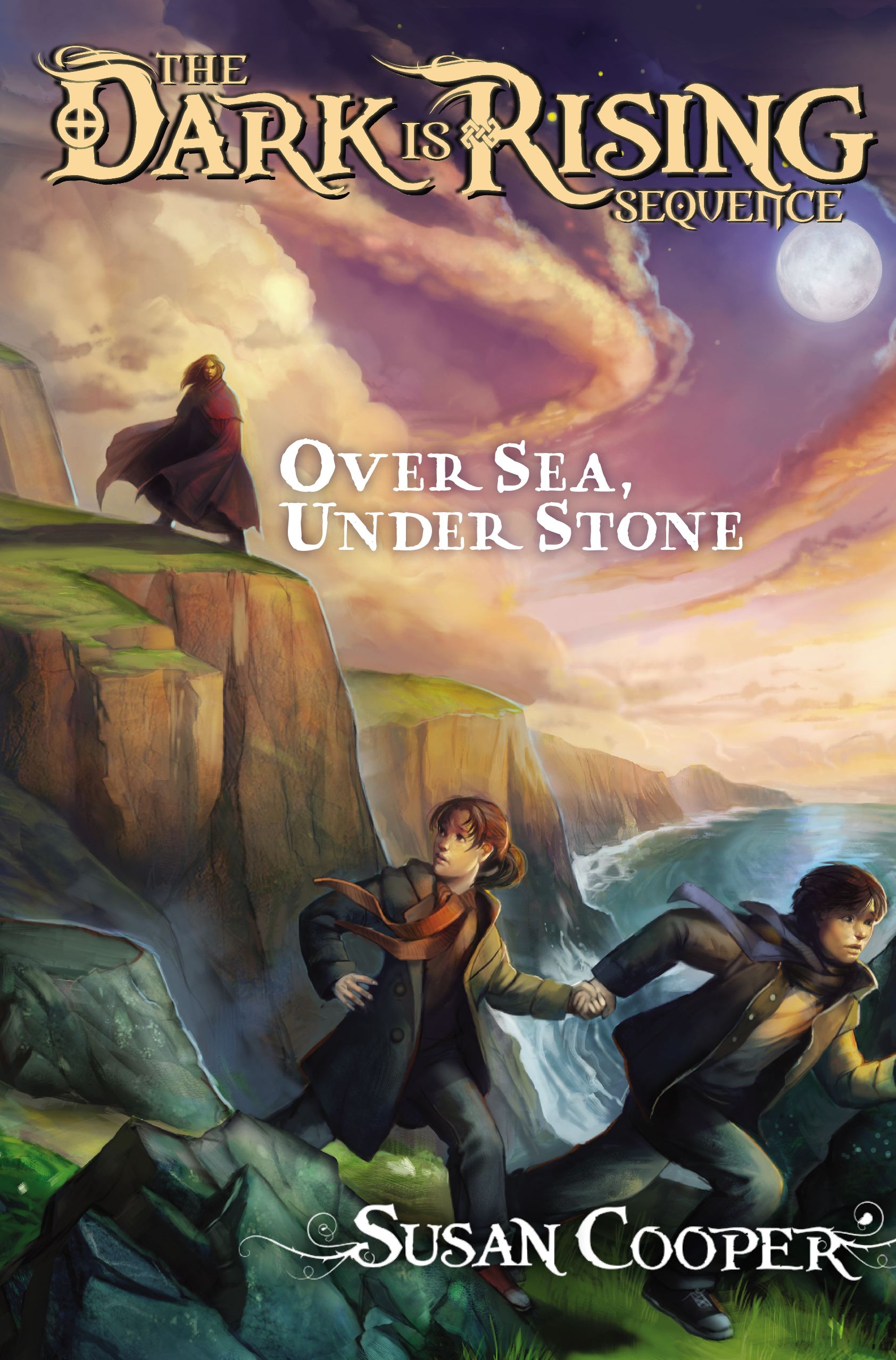 And she did, because I'd already written a novel about children in World War II called The Camp, and found that nobody wanted to publish it as an adult book. I promptly sent it to Margaret, and she wrote back, "Yesterday I read The Camp and haven't been able to stop thinking of it since then. It is an absolute heart-breaker--I was in tears at the end--and an extraordinarily perceptive piece of writing, and I do hope with all my heart, that we may publish it as a book for young readers." After some skillful editing to remove passages that seemed too adult, she published it in 1970 as Dawn of Fear, and we met for the first time. As a person she was a wonderful discovery, warm and encouraging; we were instantly friends, and when I tentatively mentioned my glimmer of an idea for a new book she wrote later, "I'm terribly keen to know how the next idea--the fantasy set in England--is coming along, so please do go on 'brooding gently' and I'll await the results with all the patience I can muster."
And she did, because I'd already written a novel about children in World War II called The Camp, and found that nobody wanted to publish it as an adult book. I promptly sent it to Margaret, and she wrote back, "Yesterday I read The Camp and haven't been able to stop thinking of it since then. It is an absolute heart-breaker--I was in tears at the end--and an extraordinarily perceptive piece of writing, and I do hope with all my heart, that we may publish it as a book for young readers." After some skillful editing to remove passages that seemed too adult, she published it in 1970 as Dawn of Fear, and we met for the first time. As a person she was a wonderful discovery, warm and encouraging; we were instantly friends, and when I tentatively mentioned my glimmer of an idea for a new book she wrote later, "I'm terribly keen to know how the next idea--the fantasy set in England--is coming along, so please do go on 'brooding gently' and I'll await the results with all the patience I can muster."
Did you know, with Over Sea, Under Stone, that you wanted to write a series?
I'd written Over Sea, Under Stone without any thought of its ever having a sequel, but when I began thinking about this new book, my imagination went into overdrive and produced a plan for a sequence not only linking the two books but adding three more. In those days this seemed hugely over-ambitious. But Margaret wrote gaily, "How perfectly marvelous to know that the next book and Over Sea are part of a sequence of five. What a glorious future! Don't for one moment think that this is daunting news, it is simply great."
And later she wrote, "The overall title The Dark Is Rising is perfectly marvelous and, so far as I know, has not been used, so hang on to it for it has a lovely sound."
It was at that point that the roof fell in: Margaret was fired from what was then Harcourt Brace Jovanovich by its new owner William Jovanovich--and like most of her authors, I broke my Harcourt Brace contract and went with her to the new imprint founded in her name at Atheneum. So, it was for MKM Books that we discussed and edited the "long and expensive" book that I called The Gift of Gramarye, but that Margaret asked me to rechristen The Dark Is Rising (in case children would think it was a book about grammar). I wrote to her, "I am half bubbly and half frightened about this book; it makes me feel more maternal than any I've ever written."
It's been 57 years since the publication of Over Sea, Under Stone. Please tell us a bit about working with and knowing McElderry.
Part of Margaret's genius as an editor was that she didn't try to shape her authors; she believed in giving them the freedom to follow their instincts--while firmly making suggestions to improve the resulting book. The Dark Is Rising was indeed too long, and I made some cuts that she suggested ("This book has a little too much weather"). Together we made minor alterations and discussed the merits of suggestions from my U.K. editor, since my books were now simultaneously edited and published on both sides of the Atlantic. It was Margaret whose judgment I trusted absolutely--and who would occasionally defend me in battles with her copy editors, particularly over my use of commas and refusal to follow the more ridiculous fiats of The Chicago Manual of Style. The defense had nothing to do with our friendship but came from her nature as an editor: deep down, her support for the writer passionate about the rhythm of words overcame her belief in rules.
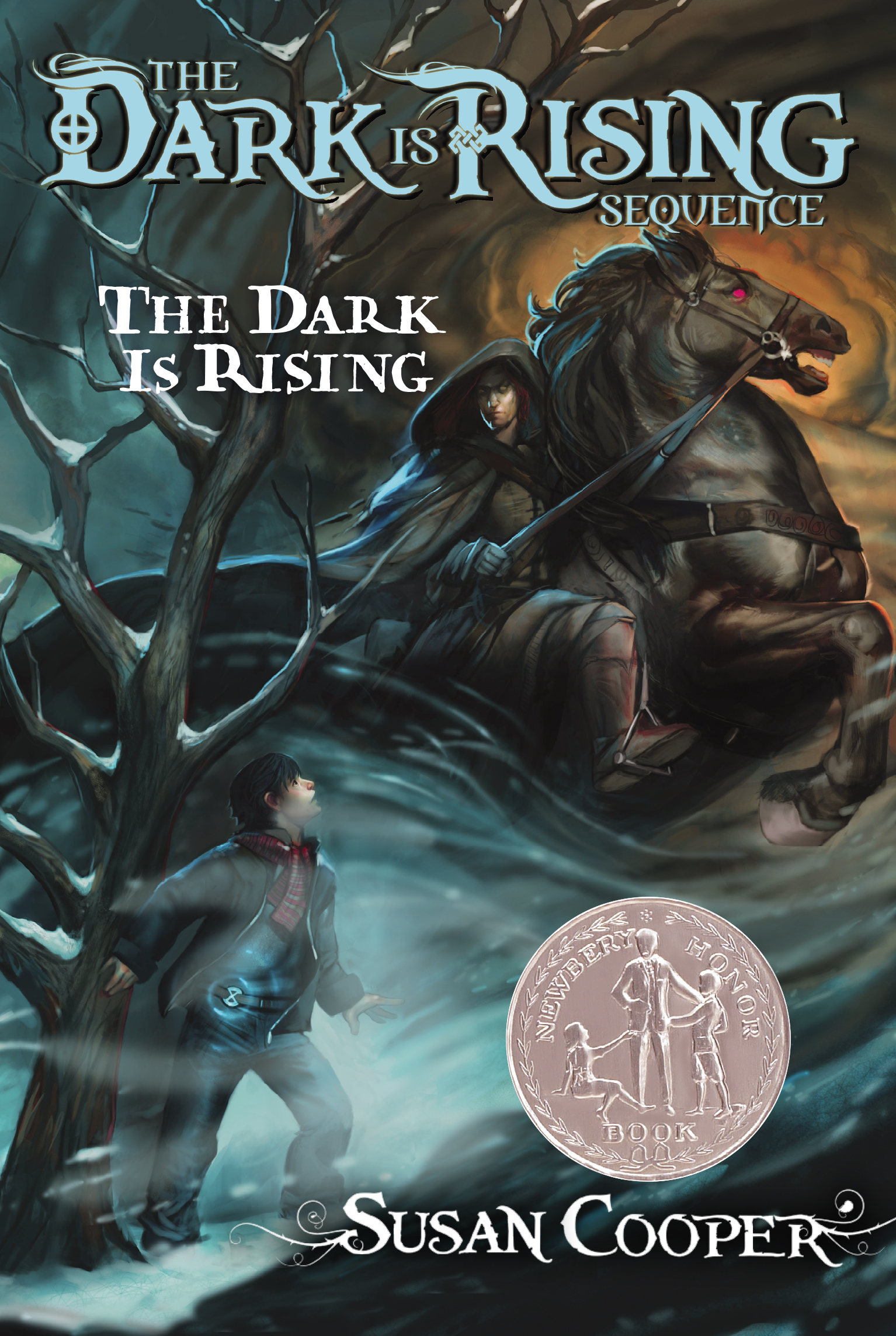 With her encouragement I followed my plans for the next books in the sequence, and by the time The Dark Is Rising was named a Newbery Honor (something whose significance she had to explain to me), I had just finished the first draft of book number four. "What a glorious title, The Grey King," she wrote to me, "I can't wait to read it." By now the letters were no longer "Dear Mrs. Grant" but "Dearest Susan... much love, Margaret," and she was Aunt Margaret to my children, and my closest friend until the end of her very long life. But the strength of the professional relationship persisted through all my subsequent books, with the mutual respect and understanding that all her authors enjoyed, and when I was lucky enough to make a Newbery Medal acceptance speech at ALA for The Grey King, its most heartfelt words were, "Margaret McElderry is the wisest and most sensitive editor-publisher I have ever known, anywhere."
With her encouragement I followed my plans for the next books in the sequence, and by the time The Dark Is Rising was named a Newbery Honor (something whose significance she had to explain to me), I had just finished the first draft of book number four. "What a glorious title, The Grey King," she wrote to me, "I can't wait to read it." By now the letters were no longer "Dear Mrs. Grant" but "Dearest Susan... much love, Margaret," and she was Aunt Margaret to my children, and my closest friend until the end of her very long life. But the strength of the professional relationship persisted through all my subsequent books, with the mutual respect and understanding that all her authors enjoyed, and when I was lucky enough to make a Newbery Medal acceptance speech at ALA for The Grey King, its most heartfelt words were, "Margaret McElderry is the wisest and most sensitive editor-publisher I have ever known, anywhere."
Is there anything else you'd like to tell Shelf Awareness readers?
Like me, The Dark Is Rising sequence has been around for a long time, and I'm deeply grateful, especially for the newly designed edition that's on its way from MKM Books. The second book, which was made into a movie that's best forgotten, is now being translated by some real magicians into radio for the BBC, who are also contemplating a TV series of the sequence. As for the author, in reaction to the gloomy years of Covid, I've just finished writing an adult book about all the moments, people and things that have brought joy into my long life. I think it's called Celebrating, and one of the people it celebrates is, of course, Margaret K. McElderry. --Siân Gaetano, children's and YA editor, Shelf Awareness
Book Candy
Book Candy
" 'First modern novel--oldest language': Sanskrit translation of Don Quixote rescued from oblivion," the Guardian reported.
Merriam-Webster suggested "9 other words for beautiful."
Messy Nessy Chic visited "20 Wendy houses for the Peter Pan in you."
"William Blake: the remarkable printing process of the English poet, artist & visionary." (via Open Culture)
Rediscover
Rediscover: John Merriman
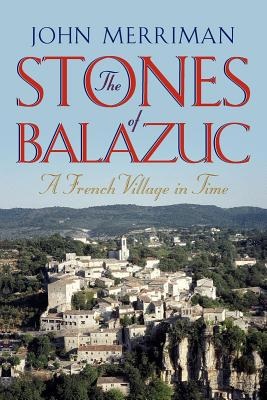 John Merriman, a professor of history at Yale University "who plumbed dozens of French governmental archives for the information that invigorated his fast-paced books about anarchists, terrorists, leftists and ordinary people in France," died May 22 at age 75, the New York Times reported. Merriman spent nearly all his teaching career at Yale, "a rumpled figure who used his storytelling gifts to animate his lectures on French and European history."
John Merriman, a professor of history at Yale University "who plumbed dozens of French governmental archives for the information that invigorated his fast-paced books about anarchists, terrorists, leftists and ordinary people in France," died May 22 at age 75, the New York Times reported. Merriman spent nearly all his teaching career at Yale, "a rumpled figure who used his storytelling gifts to animate his lectures on French and European history."
Merriman "approached the research and writing of his books with a similar goal: to avoid approaching 19th- and 20th-century French social and political history dryly," the Times noted. His books include The Dynamite Club: How a Bombing in Fin-de-Siècle Paris Ignited the Age of Modern Terror (2009); Massacre: The Life and Death of the Paris Commune (2014); Ballad of the Anarchist Bandits: The Crime Spree That Gripped Belle Époque Paris (2017); and The Agony of the Republic: The Repression of the Left in Revolutionary France, 1848-1851 (1978). He also wrote the textbook A History of Modern Europe From the Renaissance to the Present (1996). In 2017, Merriman received the American Historical Association's lifetime award for scholarly distinction.
Merriman lived in North Haven, Conn., but France was his second home. In 1987, he and his wife, who died in 2017, bought a house in the medieval village of Balazuc, above the Ardèche River. He wrote a book about the village's history, The Stones of Balazuc: A French Village in Time (2002). "I think that was the book that mattered the most to him," said David Bell, a history professor at Princeton, whom Professor Merriman hired and mentored at Yale. "The minute the Yale semester was over, he headed there, sat around in cafes and talked to people into the small hours." The Stones of Balazuc is available in paperback from W.W. Norton ($28).
Read what writers are saying about their upcoming titles


